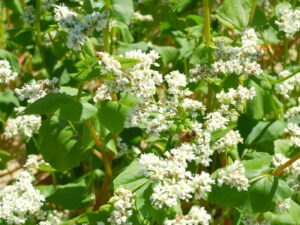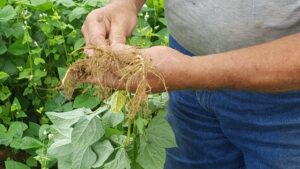One of the most frequent calls over the past few years has been, “I want to start a farm/business/value-added product (etc.).”
That is usually followed up with, “What grants/funding sources are available?”
After rattling off a list of a few common sources of funding for new farmers there’s an added caveat that I don’t know the current status of those programs or what restrictions they have regarding new farming ventures. There are more programs out there with available funding, but there’s no comprehensive list of all grant programs supporting agricultural businesses, until now.
Farm Credit East has just released a report “identifying federal, regional and state grants, loan guarantees, and other incentives available to assist Northeast producers of all types and sizes.”
“Grants can be a great resource to provide additional funds needed to take on larger projects,” said Chris Laughton, Farm Credit East Director of Knowledge Exchange. “Unfortunately, they’re often under-utilized because they can be time consuming and involve quite a bit of paperwork.”
The report, from Farm Credit East Knowledge Exchange, includes funding opportunities available in the eight states served by Farm Credit East. Programs are categorized by their main focus: beginning farmers; conservation, environment and forestry; energy; fisheries and aquaculture; organic; rural business development; and research, education and promotion.
The report titled Grants and Incentives for Northeast Agriculture is available at FarmCreditEast.com or by contacting Chris Laughton at (800) 562-2235 or Chris.Laughton@farmcrediteast.com for more information.
Farm Credit East also has grant writing assistance services. Information is available on their grant writing page.
 Now that some of our spring planted crops have finished, rather than leaving fields fallow or replanting fields that may have had some issues with plant diseases or insect pests, consider replanting with a summer cover crop. It is not too late to take advantage of summer cover crop benefits. What do summer cover crops do for soil health or future crop improvements? See below:
Now that some of our spring planted crops have finished, rather than leaving fields fallow or replanting fields that may have had some issues with plant diseases or insect pests, consider replanting with a summer cover crop. It is not too late to take advantage of summer cover crop benefits. What do summer cover crops do for soil health or future crop improvements? See below: otherwise be lost. The cover crop plant takes up the nitrogen and after the crop is incorporated it decomposes, thus releasing the N for subsequent crops to use. If legume cover crops are planted, they have the ability to “fix” nitrogen from the atmosphere and through the same decomposition process will provide N for subsequent crops. Be sure to inoculate legume seed just prior to planting with Rhizobium bacteria in order to gain the maximum N fixation benefits.
otherwise be lost. The cover crop plant takes up the nitrogen and after the crop is incorporated it decomposes, thus releasing the N for subsequent crops to use. If legume cover crops are planted, they have the ability to “fix” nitrogen from the atmosphere and through the same decomposition process will provide N for subsequent crops. Be sure to inoculate legume seed just prior to planting with Rhizobium bacteria in order to gain the maximum N fixation benefits. 